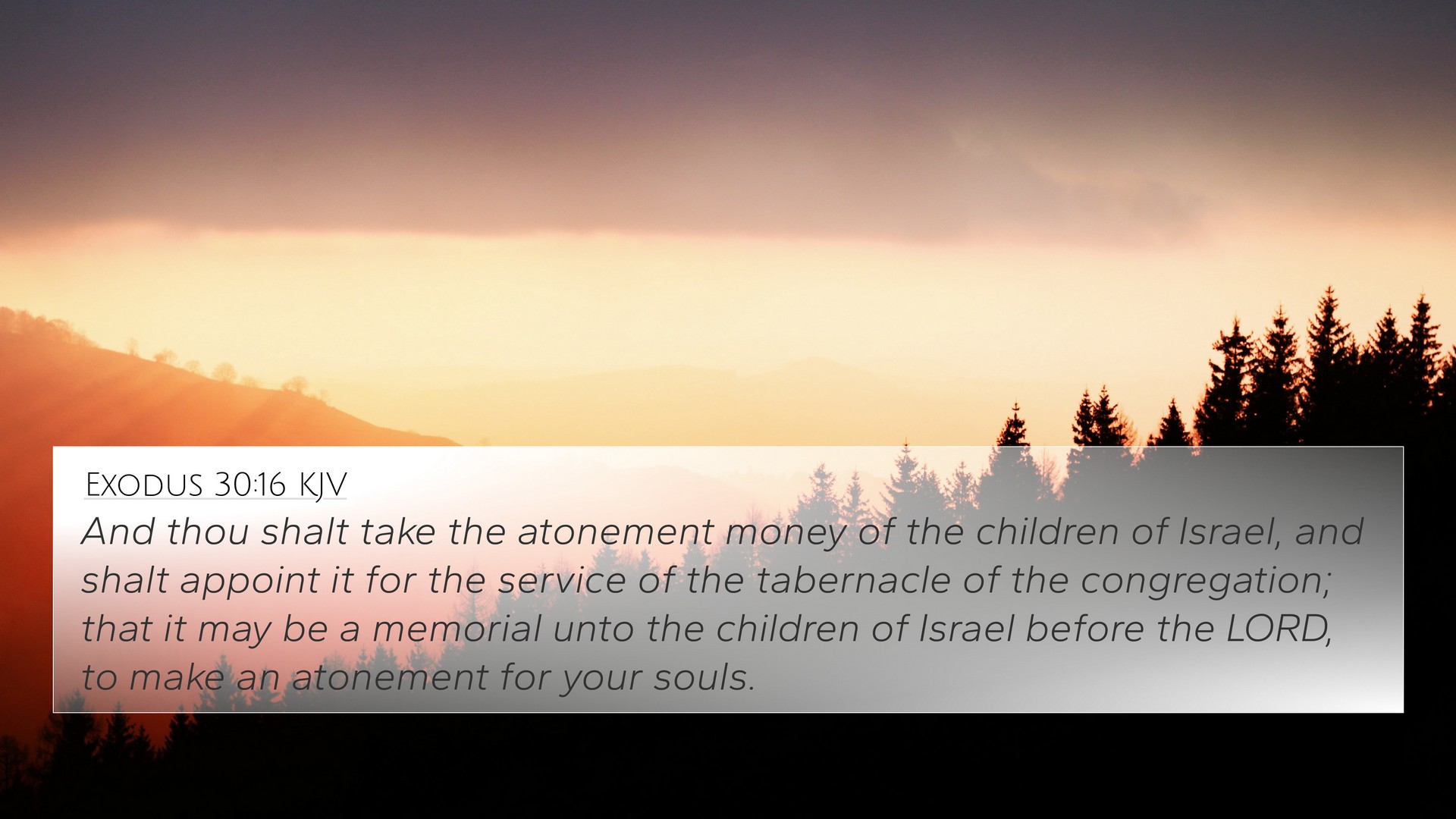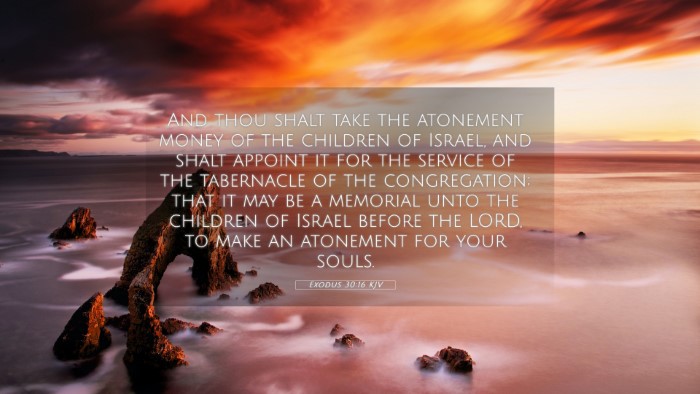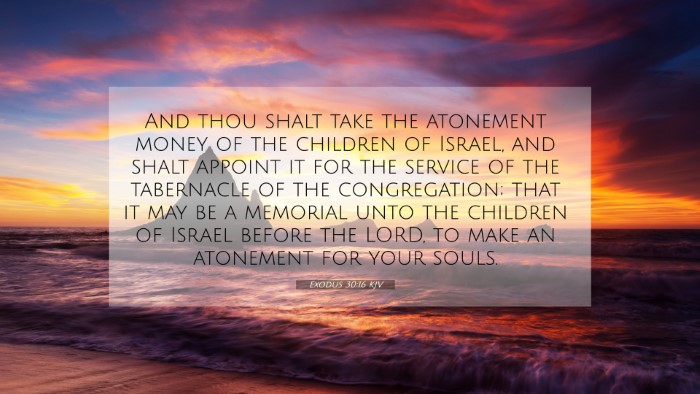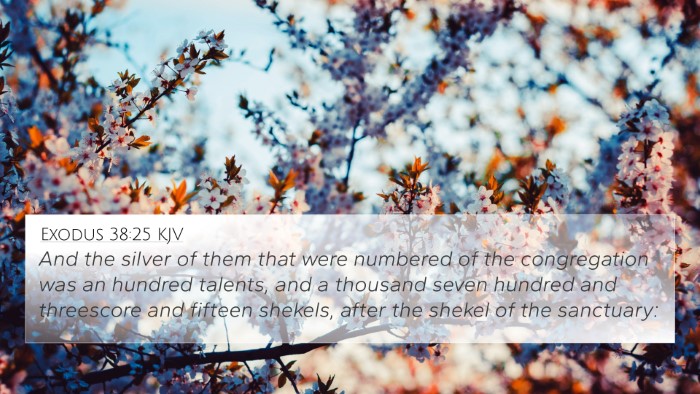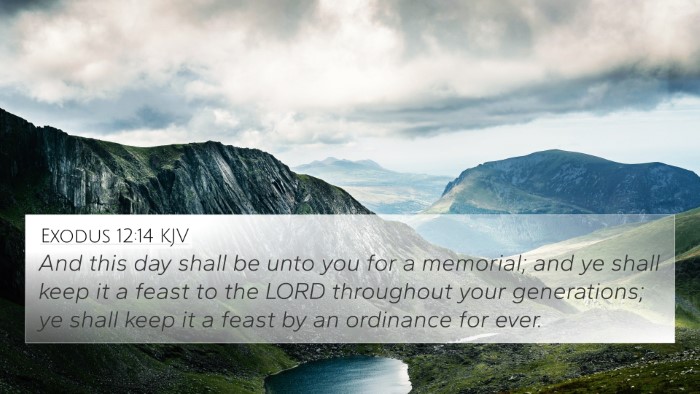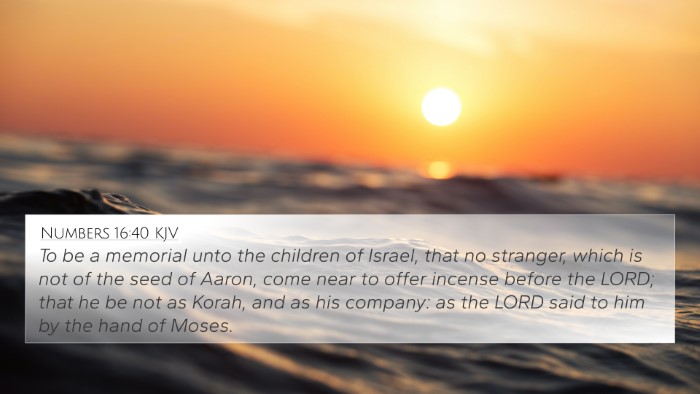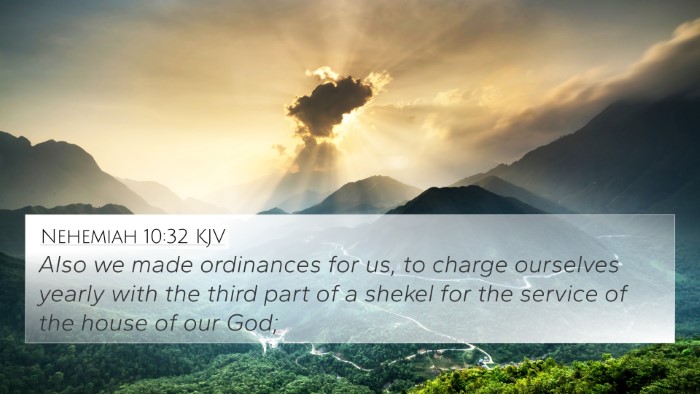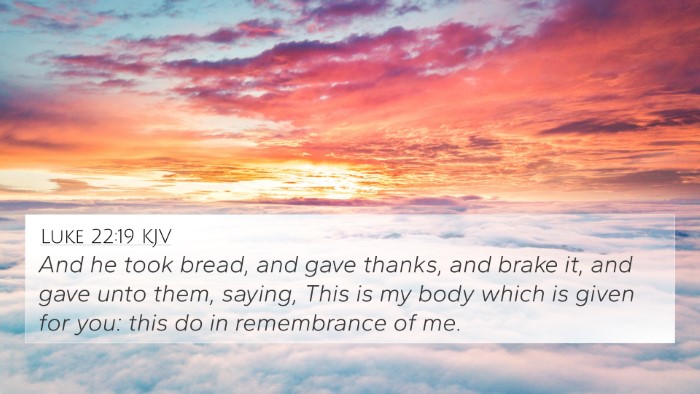Meaning and Interpretation of Exodus 30:16
Exodus 30:16 states: “And you shall take the atonement money from the children of Israel and shall appoint it for the service of the tent of meeting; that it may bring the children of Israel to remembrance before the Lord, and it shall be an atonement for your souls.”
Overview
This verse highlights the significance of the atonement money, which was a form of tribute given by the Israelites for the maintenance and operational needs of the tent of meeting (the Tabernacle). It symbolizes both the importance of collective worship and the personal accountability of each individual before God.
Commentaries Insights
-
Matthew Henry’s Commentary:
Matthew Henry emphasizes that the atonement money serves the dual purpose of remembrance and atonement. It brings to mind the need for redemption and signifies the value God places on the contributions of His people to sustain spiritual activities. This financial act also symbolizes a deeper spiritual transaction—acknowledgment of sin and a commitment to God's covenant.
-
Albert Barnes’ Notes:
Barnes elucidates that the atonement money was a means of atonement for the souls of the Israelites. Each individual contributed half a shekel, underscoring equity and equal responsibility among God's people. He highlights this verse illustrates how God provides a means for His people to participate in their own redemption.
-
Adam Clarke’s Commentary:
Clarke points out that the practice of giving atonement money serves as a reminder of God’s continual presence and mercy towards His people. He discusses how this act offered the Israelites an opportunity to remember their need for atonement and the reconciliation with God. Each contribution fostered a communal connection as well as individual confession of guilt.
Thematic Connections
This verse links to various themes throughout the Bible, especially regarding atonement, sacrifice, and communal worship. Below are some pertinent connections:
- Leviticus 17:11: "For the life of the flesh is in the blood, and I have given it for you on the altar to make atonement for your souls." This highlights the concept of blood atonement shared throughout the sacrificial system.
- 1 Peter 1:18-19: "Knowing that you were not redeemed with corruptible things, like silver or gold, but with the precious blood of Christ." This New Testament verse reflects the ultimate atonement offered through Christ.
- Matthew 17:24-27: This passage recounts Peter’s temple tax experience, connecting the notion of atonement with practical contributions to God’s house.
- Romans 5:9: "Much more then, being now justified by his blood, we shall be saved from wrath through him." This verse emphasizes that atonement leads to justification and salvation.
- Hebrews 9:22: "Without the shedding of blood, there is no remission." This stresses the principle of atonement essential to God's covenant with humanity.
- Exodus 12:13: “When I see the blood, I will pass over you.” This bears significant relation to the theme of atonement and divine mercy through sacrifice.
- 2 Corinthians 5:21: "For he made him who knew no sin to be sin for us, that we might become the righteousness of God in him." This concept advances the New Testament understanding of atonement in Christ.
Applications of the Verse
Exodus 30:16 serves not only as a historical reference but also as a source of spiritual reflection with contemporary implications:
- It encourages personal participation in the community of faith.
- It reminds believers of the cost of sin and the necessity of atonement in their relationship with God.
- It fosters gratitude towards God for providing a system of atonement, which is fulfilled in the New Testament through Jesus Christ.
Conclusion
In summary, Exodus 30:16 encapsulates the profound intertwining of atonement, community responsibility, and individual accountability before God. The insights from public domain commentaries like those of Matthew Henry, Albert Barnes, and Adam Clarke provide a rich tapestry of understanding surrounding this pivotal instruction given to the Israelites. By using cross-referencing techniques and exploring thematically linked scriptures, believers can gain a more comprehensive grasp of biblical atonement and God's redemptive plan through history.
